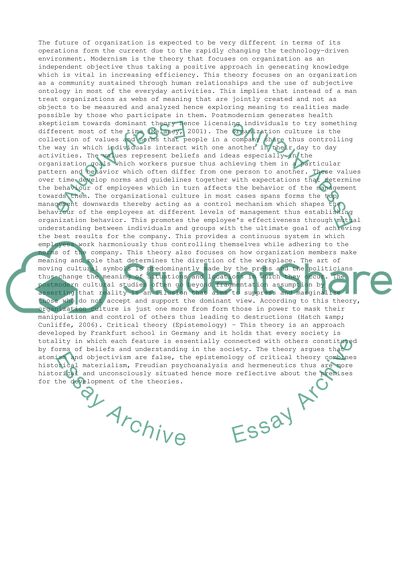Cite this document
(“Organisational Theory (Business Management) Essay”, n.d.)
Organisational Theory (Business Management) Essay. Retrieved from https://studentshare.org/business/1484637-organisational-theory-business-management
Organisational Theory (Business Management) Essay. Retrieved from https://studentshare.org/business/1484637-organisational-theory-business-management
(Organisational Theory (Business Management) Essay)
Organisational Theory (Business Management) Essay. https://studentshare.org/business/1484637-organisational-theory-business-management.
Organisational Theory (Business Management) Essay. https://studentshare.org/business/1484637-organisational-theory-business-management.
“Organisational Theory (Business Management) Essay”, n.d. https://studentshare.org/business/1484637-organisational-theory-business-management.


